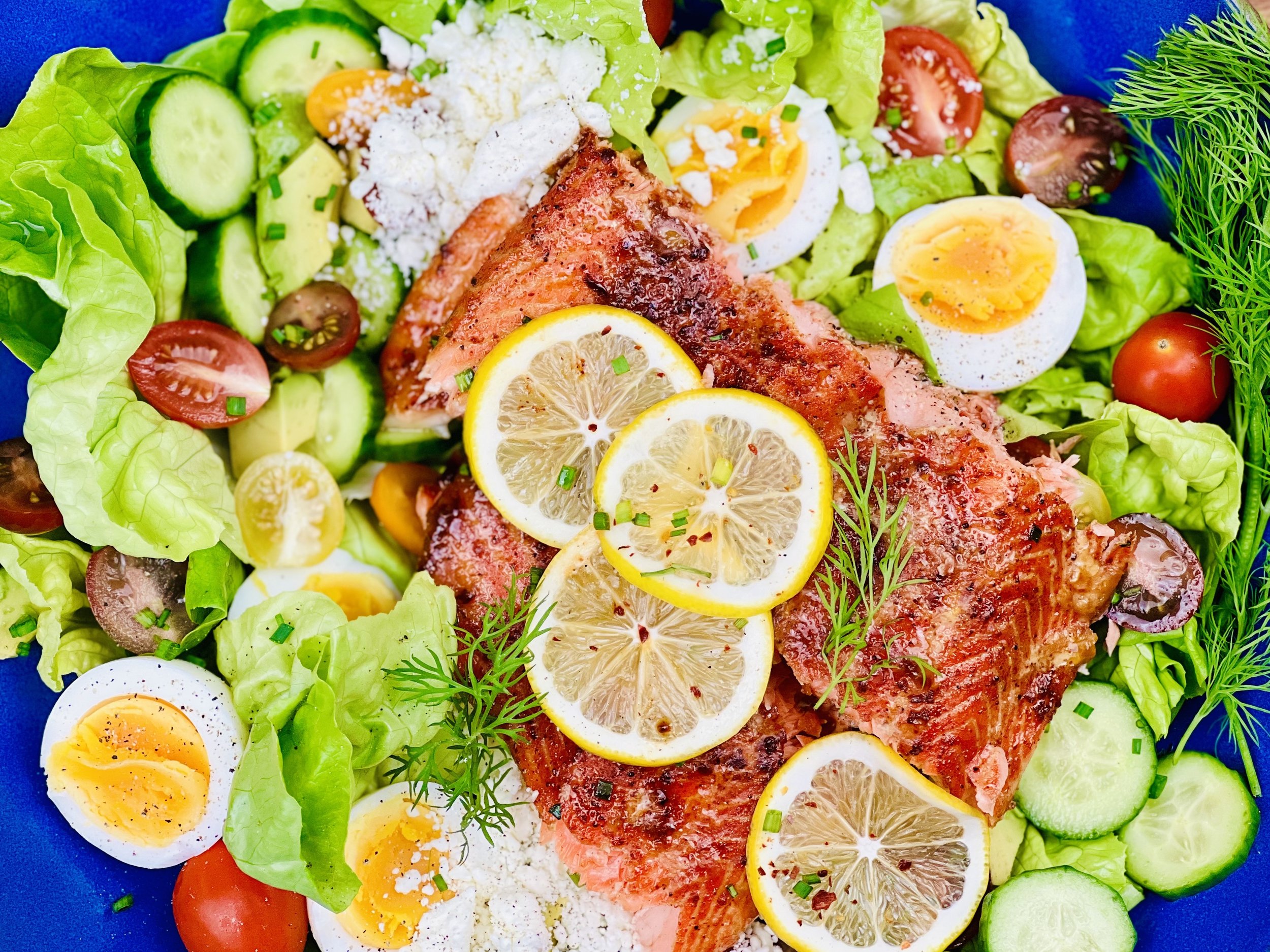Deliciously Low FODMAP
Inspire yourself with hundreds of delicious low FODMAP recipes, tips, and tools, and enjoy the abundance that is yours even when you have IBS.
Use the buttons and filters to find something specific or browse the complete collection for inspiration.
Discover a treasure trove of recipes with my FREE recipe club! Get new ideas delivered straight to your inbox every week.
Deliciously Low FODMAP is a trademark of IBS Game Changer, LLC
Filter to find Recipes and Tools
More Filtering Options
- All 731
- Appetizer 50
- BBQ 46
- Bowl 32
- Breakfast 58
- Cocktails 13
- Collection 1 58
- Collection 10 27
- Collection 11 30
- Collection 12 27
- Collection 13 31
- Collection 14 29
- Collection 15 31
- Collection 16 34
- Collection 17 31
- Collection 18 33
- Collection 19 36
- Collection 2 32
- Collection 20 33
- Collection 21 33
- Collection 22 40
- Collection 23 13
- Collection 24 1
- Collection 3 28
- Collection 4 29
- Collection 5 30
- Collection 6 32
- Collection 7 31
- Collection 8 31
- Collection 9 32
- Condiments 6
- Crock Pot 4
- Dessert 107
- Diabetes Game Changer Exception Protocol Contains Alcohol 11
- Diabetes Game Changer Exception Protocol Contains Flour 109
- Diabetes Game Changer Exception Protocol Contains Flour AND Sugar 77
- Diabetes Game Changer Exception Protocol Contains Sugar 49
- Diabetes Game Changer First Four Weeks 364
- Dinner 332
- Drink 8
- Easter 1
- Free Guide 17
- Gluten-free 592
- Gut Microbiome 2
- Guthealth 3
- Holidays 69
- IBS Triggers 4
- Keto Friendly 125
- Lactose-Free 175
- Low FODMAP Diet 717
Feeling a bit blue? You’ve got to move it move it.
Exercise is free, doesn’t require any special equipment, and if we don’t put too many barriers in our own way, it’s also easy.
When you’re feeling down and out sometimes getting up and out is the last thing you want to do. But did you know, for most of us, moving your body in some form (any form!) of exercise can be just as good as taking an anti-depressant in terms of the positive results you get?
Just a little exercise can help reduce both depression and anxiety because it makes your brain happy! How does it do that? Regular exercise causes your brain to release endorphins and other natural brain chemicals that enhance your sense of well-being and make you FEEL GOOD!
Exercise is free, doesn’t require any special equipment, and if we don’t put too many barriers in our own way, it’s also easy.
Don’t like running, lifting weights, going to the gym or playing basketball? There are other ways to get your heart pumping! Try putting some happy tunes in your ears and dancing, get outside and do some gardening, wash your car, go for a walk around the block.
Anything that gets you out of your chair, off the couch, out of bed, away from your digital screen, and moving can help improve your mood.
You “don’t have time” to exercise? You don't have to do it all at once! Break up your day with some “sneaky exercise.” Going upstairs? Go up and down five times instead of only once! Going to the post office, hardware store, grocery store? Ride your bike, walk, or at least park your car in the furthest parking spot instead of the closest one.
Find activities you enjoy, and look for “sneaky exercise” opportunities to make sure that you move your body in some capacity every day. Your body and mind will reward you many times over.
Quick Reference Guide to Sugars and FODMAPs
The low FODMAP diet is not intended to be sugar-free, but you need to make sure you are choosing low FODMAP sweets.
As we enter the holiday season we always seem to find ourselves surrounded by food — much of which is sweet! Even this year, while we’re all on pandemic quarantine, the cookies, cakes, and candies seem to be materializing as if by magic or maybe it's the baking fairy in my kitchen! The gifts from friends, neighbors and colleagues. The displays at the supermarket. All seem to say “eat me I’m deliciously sweet!”
The low FODMAP diet is definitely not intended to be a sugar free diet and you can indulge in an occasional treat, but you need to make sure you are choosing treats that are sweetened with a low FODMAP sweetener. This is why we created the Quick Reference Guide to Sugars and FODMAPs.
Of course we all know, any sugar or sweetener should be consumed in moderation. But that gets tricky when you are literally surrounded by sweets everywhere you go! To limit your consumption, you need to plan ahead so you don’t spend all your time arguing with yourself. If you’re going to eat a cookie. Plan to eat a cookie. And when you eat the cookie, be very conscious about what you’re doing. Don’t just wolf it down as though you’re going to get “caught.” Enjoy every bit of it! Savor it! Make it last. Doing this will make it a pleasure NOT a guilty pleasure. But it does require some advance planning.
When it comes to sugar and sweets, having a plan you make ahead of time that you can stick to in the moment, is your best bet. Just decide “Today I’m going to eat a cookie.” And then stick with your plan and don’t make it negotiable. Don’t wonder if you’re actually going to eat ten cookies. You’re not. You made a plan and you’re sticking to it. And, you can make a new plan for tomorrow.
Once you have your plan, knowing what sweets are “safe” when you have IBS means you can indulge without fear.
To help you navigate your way around sugars and FODMAPs grab our handy quick reference guide. It will make selecting safe sweets easy.
Cut your coffee intake, not your mental clarity
Some great ways to cut your caffeine without cutting your mental clarity.
Is that even possible?
Yes. Yes it is. I had to cut my caffeine intake down because it was wreaking havoc on my IBS. And believe me, I “needed” my 2 or 3 cups of coffee every day! I just decided it was “worth” the IBS consequences because I felt I needed the caffeine to wake up in the morning and to maintain my mental focus and clarity throughout the day.
As my symptoms got worse, I could no longer convince myself it was worth the consequences to keep drinking regular coffee. As luck would have it, about that time, I was listening to The Tim Ferriss Show podcast, and he was raving about Mushroom Coffee by Four Sigmatic. He said he always asked his guests to have a cup when they came on his show so they would get the benefit of incredible mental clarity while he interviewed them.
That convinced me to give it a try.
As with any other new thing I introduce to my diet, I took it very slowly. I added just a half a packet of Mushroom Coffee to a cup of brewed decaf. Then…I tasted and discovered it wasn’t half bad! Even better, I found out the combination of a very small amount of caffeine (in the decaf) when combined with a small amount of the mushroom coffee mix gave me plenty of get up and go without any of the usual coffee side effects. I was awake, alert, and my mind was clear. What a discovery!
There are several varieties, but the one I like best has Lions Mane for mental focus.
Post Script Update (June 2023): Lion’s Mane is now in the Monash app and tou can order powdered Lion’s Mane that you can stir right into your decaf coffee without adding any caffeine at all. The link to order is here. After my first cup of the day (where I like to include the tiny bit of caffeine in the Four Sigmatics Mushroom Coffee blend) I now use powdered Lion’s Mane in my coffee later in the day and I love the mental clarity results!
Link note: This post contains links for you to easily purchase items listed on the page. In some cases, we have provided a special discount code for IBS Game Changers so be sure to use it when you purchase an item to get the discount that has been arranged just for you! As an Amazon Associate, I earn a commission from qualifying Amazon purchases.
Is Caffeine a trigger for IBS?
How to use caffeine to your advantage.
The answer to this question is Yes…BUT that isn’t necessarily bad.
Caffeine acts on the smooth muscle of your gut and serves to stimulate the movement of your gut. This, in turn, stimulates the movement of whatever is inside your gut.
If you have a tendency towards diarrhea (IBS-D) then stimulating your gut will only make it worse. If you have a tendency toward constipation (IBS-C) then some gentle gut stimulation may be very helpful.
Just like everything else with IBS, if you listen to your body and treat it with love and tenderness, not frustration and anger you will have a much better result. A small amount of well-timed caffeine (at a regular time in the morning) is worth experimenting with. You can play with the timing and the amount and then look at the results.
If you are experiencing pain, cramping, and diarrhea, you may need to back off. If you aren’t experiencing anything then you may choose to have a bit more. Let your body do the talking.
If you are having wide variations in your symptoms and ongoing difficulties no matter what you do, you will also want to consider other factors such as hydration status, stress, and diet that could be triggering your symptoms. In the IBS Game Changer program, we consider all of these things and we help you figure out what particular triggers might be affecting you so you can reduce or avoid them and get your body on track.




